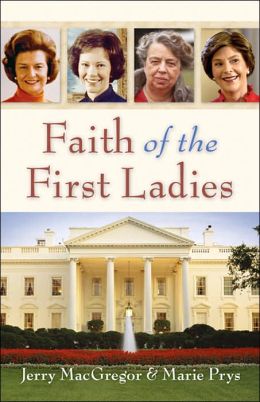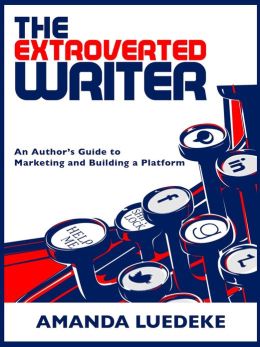-
Continue Reading "Thursdays with Amanda: Overly Aggressive Marketing Syndrome, Symptom Two"
Thursdays with Amanda: Overly Aggressive Marketing Syndrome, Symptom Two
 Amanda Luedeke is a literary agent with MacGregor Literary. Every Thursday, she posts about growing your author platform. You can follow her on Twitter @amandaluedeke or join her Facebook group to stay current with her wheelings and dealings as an agent. Her author marketing book, The Extroverted Writer, is available from Amazon and Barnes & Noble.
Amanda Luedeke is a literary agent with MacGregor Literary. Every Thursday, she posts about growing your author platform. You can follow her on Twitter @amandaluedeke or join her Facebook group to stay current with her wheelings and dealings as an agent. Her author marketing book, The Extroverted Writer, is available from Amazon and Barnes & Noble.First, HAPPY FOURTH OF JULY, AMERICA! And a big thank you to everyone who has sacrificed to make this country what it is.
We’re on symptom #2 of the Overly Aggressive Marketing Syndrome, and it’s Social Media Saturation.
Test for this by looking at your recent Tweets, personal Facebook status updates, and blog posts. If multiple times per day your updates and Tweets focus on your book and/or career, chances are you’re either in the middle of a book release or you suffer from this symptom.
Social media is full of people demanding your attention. “Like” this! Read that! Watch this video! Visit that link! With so many requests needing decisions and response from us, we start to filter. We pick the links we want to visit, the videos we want to watch, the posts we read, the status updates we “like,” the Tweets we share. And the more friends or connections we have, the choosier we have to get.
Our “choosiness” quickly becomes somewhat formulaic. We give most attention to our closest friends and family. We give a fair amount of attention to those we find humorous, entertaining, or thought-provoking. We leave a smidgeon of attention for those who may surprise us…those we have previously written off or mentally excluded from our list of favorites. And we leave the least amount of attention to those who always have something to say…to those who overwhelm with their shared photos, links, requests, and jibber jabber.
My friends… don’t be so forecful with your online promotions that you end up in that
-
Continue Reading "Giving the Beginner a Chance"
Giving the Beginner a Chance
GUEST WRITER Carmen Berry, New York Times bestselling author, is a full-time book coach working from Southern California. She specializes in developing projects from first-time author who want to write and publish high quality self-help books. She offers live, online classes starting new each month. You can learn more about her services at www.carmenberry.com.
Giving the Beginner a Chance by Carmen Berry
I remember when I got my first book published—in the 1987—a million years ago in publishing-time. Back then, my editor had time to develop my project, and me as an author. Now, with over twenty self-help books under my belt, I wonder what challenges I’d face if I were starting out today.
The industry has changed radically, with first-time authors facing stiffer competition and less editorial support. Yes, it’s true that self-publishing is an option, but there are few who truly understand how to write and publish a book like a pro.
This places a heavier burden on agents to find top-notch first-time authors who have sellable ideas and well written manuscripts—and for first-time authors to take responsibility for their own development.
A few years ago I realized it was time for me to give back to the publishing industry I love, especially to those who want to help others through their writing. I began to coach first-time authors who had great messages to share, but who were clueless about how to prepare a solid proposal or find a high quality agent.
For those of you who are just starting out I have one piece of advice: If you do not have a solid structure created for your book, stop writing your manuscript. Odd advice? Perhaps. But until you have a clear writing strategy and a strong book structure in place, it may be a waste of time to continue writing. Would you build a house without a blueprint? Of course not. Then why start
-
Continue Reading "The “b” word …"
The “b” word …
School is out, summertime is upon us all, and I’m sure I’m not the only person who has heard the “b” word from their kids more than once recently. I’ll confess, I used to hate it and get terribly frustrated when my son would utter it. Lately, though, I actually find myself smiling when he uses it. And I’ve been looking for opportunities to use the word myself.
I think you should too.
In our house, the “b” word is spelled B-O-R-E-D.
I want to challenge you to actually try embracing it and exercising the meaning of the word. As in doing nothing on purpose, and sitting still through the restlessness until you feel like you did the last time you said “there’s nothing to do! I’m bored!” (And … I wonder, how long has THAT been?)
I also wonder if the reality that being, and staying busy – just for the sake of not being still – is potentially one of the most overrated endeavors humans undertake. To that point, I agree with several of the ideas in this article on the topic of being caught in “The Busy Trap.” http://opinionator.blogs.nytimes.com/2012/06/30/the-busy-trap/
I’ll admit, not producing is one of the hardest things for me to do, er, not do. Or not, not do. Ack. You know what I mean.
Sometimes, after dinner, when my son says, “Mom, just sit down with us,” or my husband suggests we go for a bike ride or walk the dog, I usually have a long list of reasons why I shouldn’t. Emails I should write or answer. Calls I should schedule. Manuscripts I should look at. I’m a hard worker. I naturally gravitate to being productive. It’s just who I am.
Or is it just what I do?
Recently, I’ve begun to realize that pursuing a state of boredom/idleness/stillness is the best antidote to the “crazy busy, purpose-driven over-achieving” state of
-
Continue Reading "Refining Our Fiction"
Refining Our Fiction
GUEST WRITER Tina Bustamante lives in Temuco, Chile with her husband and two children. Her first novel, As Waters Gone By, releases in September with Leap Books. You can follow her on Facebook, Twitter, or at www.tinabustamante.com where she writes about her life in South America.
REFINING OUR FICTION
By Tina Bustamante
In thinking about the arduous task of refining our fiction, I see myself at my desk, staring at yet one more editorial letter from my editor asking me to think more about the theme of my novel. When I see this picture in my mind’s eye, it is also accompanied with a clear and noteworthy desire to inflict painful harm on said editor, and write her a lovely letter in response, explaining that if she can’t figure out what the theme of my novel is, perhaps she ought to find a new job. The problem is not me. My book is fine. I know exactly what I am trying to say. Why doesn’t she?
This has been the story with my editor for the last year. I make changes, sharpen the prose, cut the darlings she thinks are superfluous, and re-send it, believing in the core of my being that I have sent her something good, maybe even amazing. She writes me back, attaching some ridiculous advice about theme, about honing in on what it is I’m trying to say, and then asks me to do another short assignment on figuring out the theme. Consequently, I would sit at my desk and rage, clenching my teeth in agonizing frustration.
For months, I chafed. I wanted to throw her lovely editorial letters into a fishing boat motoring its way into the center of the Black Sea. For a while, it was either forget her advice or forget the novel, because for the life of me I didn’t understand what she was talking about. Until one beautiful sunny day,
-
Continue Reading "Message Versus Craft"
Message Versus Craft
BY CHIP MACGREGOR
Someone wrote and asked a question that is related to my earlier criticism of the movie Fireproof and some of the other religious art I saw at ICRS this year. They noted, “You said that good messages and moral content don’t trump quality… but does quality trump message and moral content?”
A fascinating question. It’s clear that to some (for example, the people who really enjoyed Fireproof) that a good message trumps bad craft. They’re welcome to that opinion, which is why it doesn’t bother me a bit to have someone join in the discussion and say, “You’re wrong — I loved the movie because it moved me.” I just don’t agree — I couldn’t get past the junior high acting and the high school script. So to me, the great message didn’t overcome the bad art.
Looked at another way, I really appreciate the redemptive words to the song “Everything Shines” from the band Great Big Sea, and I wouldn’t enjoy seeing an off-key singer and a bad garage band playing that tune, no matter how sincere they were. I wouldn’t want to spend money to see bad paintings, even if the artist was trying to portray something redemptive.
But the reverse can be tricky. The films of Oliver Stone might be nice to look at and well acted, but the messages range from “angry” to “deeply stupid.” Who needs another anti-American screed from an over-rated hack? Years ago, I thought the movie The English Patient was incredibly well done – great acting, great art, incredible script… and a repulsive message. Life is sacred. Morality does exist. Setting up a scene where two people boink one another while a crowd of people sing in church on the other side of the wall was just a bit too “in-your-face-you-uptight-religious-people” for me. Similarly, The Cider House Rules was a fairly well-done film, but it’s over-the-top focus on “why
-
Continue Reading "To Write A Series or Not To Write A Series, by GUEST BLOGGER RACHEL HAUCK"
To Write A Series or Not To Write A Series, by GUEST BLOGGER RACHEL HAUCK
Guest blogger Rachel Hauck is an award-winning, best selling author of critically acclaimed novels such as RITA nominated The Wedding Dress and RITA nominated Love Starts with Elle, part of the Lowcountry series, the Nashvegas series and the Songbird Novels penned with multi-platinum recording artist, Sara Evans. Their novel Softly and Tenderly, was one of Booklists 2011 Top Ten Inspirationals. Her current release, Once Upon A Prince, hit #5 in Kindle Amazon.
To Write A Series or Not To Write A Series by Rachel Hauck
Thanks to Chip for the opportunity to blog this week! I’ve known Chip for a number of years of which the last four he’s been my agent.
It’s been an honor and privilege to work with him. Our working relationship started when God shouted “Chip MacGregor” to me in a dream. True story.
It’s also how I found out he played the glockenspiel in the 8th grade band.
Chip likes to joke on his blog and unabashedly share his opinions, but he also cares about people and writers, and is more kind hearted than he’ll let show.
Thanks Chip for being on the other end of the phone when I need it!
***
So, now to the real purpose of the blog. How do series play into publication for published authors as well as unpublished? Should unpublished authors be concerned with writing a series?
I live in a really cool little community, a sort of oasis in the middle of busyness, and it’s easy to get to know our neighbors.
A new family recently moved in and the wife/mom wants to be a novelist. The other day we stood in front of her house talking books and she mentioned how she had a whole series planned.
Her comment landed on a pile of “I’m writing a series” statements I’ve heard from beginning writers over the years. Seems everyone wants to write a series.
And
-
Continue Reading "What is a standard fee to charge when speaking?"
What is a standard fee to charge when speaking?
Someone wrote to say, “I’ve been asked to speak several times since my book came out — some large venues, some very small. My problem is that I don’t know what to charge when I speak? A flat fee? A sliding scale? Is there some guidance you can give me?”
Happy to begin this conversation. Okay… start to think about creating a matrix for your speaking events.
First, there are certain topics you speak about. (We’ll name those A, B, C, D.)
Second, there are lengths of time you can do each one — for example, let’s say you can talk about Topic A for 30 minutes, for 2 hours, or for an entire weekend retreat, but you can only talk about Topic B in a couple one-hour blocks of time, so you could do a one-hour or two-hour chunk of content; and Topic C is nothing more than a 20 to 40 minute casual talk.
So now you have some options… You’ve got A1 (30 minutes of Topic A), A2 (2 hours on Topic A), A3 (a whole day on Topic A), B1, B2, and C1, etc. Still with me? That starts to give you important ways to figure out the topic and time.
Third, you need to consider how many times you speak. If they want you to just show up and give a speech, that’s X. If they want you to teach several workshops, that’s Y. If they want you for a weekend retreat, that’s Z. (This will start to get confusing, but it means you’d be doing a Y Day — several workshops, where you’ll do A2, B2, and C1, for example. If you hate my numbering, create your own that makes more sense.)
Fourth, you need to consider the venue. The bigger the venue, the more you charge. Most speakers have one to three tiers (small setting, medium sized setting, large or arena setting).
-
Continue Reading "Thursdays with Amanda: Overly Aggressive Marketing Syndrome, Symptom One"
Thursdays with Amanda: Overly Aggressive Marketing Syndrome, Symptom One
 Amanda Luedeke is a literary agent with MacGregor Literary. Every Thursday, she posts about growing your author platform. You can follow her on Twitter @amandaluedeke or join her Facebook group to stay current with her wheelings and dealings as an agent. Her author marketing book, The Extroverted Writer, is available from Amazon and Barnes & Noble.
Amanda Luedeke is a literary agent with MacGregor Literary. Every Thursday, she posts about growing your author platform. You can follow her on Twitter @amandaluedeke or join her Facebook group to stay current with her wheelings and dealings as an agent. Her author marketing book, The Extroverted Writer, is available from Amazon and Barnes & Noble.We’re going through the symptoms of Overly Aggressive Marketing Syndrome, and today’s symptom is Conversation Domination.
Test for this symptom by interacting with a potential reader, and then when finished ask yourself what you know about them. If you come away only knowing their name and where they’re from, chances are, you suffer from this symptom.
Have you ever met an author or writer who will simply not stop talking about their books/deadlines/ideas/plans/what their editor said/what their agent said/what their fans said/and on and on and on? These are writers who ask a question and then leave no room for you to answer. Writers who find ways to steer conversation toward their books and lives. Writers who don’t take the time to get to know their readers.
There’s nothing wrong with being talkative. Many times, talkative people have a knack for making others feel comfortable and welcomed. But excessive chatting can result in conversation domination…a dangerous symptom that will turn potential readers away.
Now, I get it. Talking is a way to stay in control. It’s a way to keep the conversation where you want it, and by preventing the conversation from going in an unknown direction, you may feel as though you’re more likely to make a sale, create a fan, or win someone over. But it just doesn’t work that way.
So how do you treat this symptom? I’m no psychologist, but I wonder if these ideas may help…
1. Have questions ready. One way to win people over is to let them talk about themselves. So, by
-
Continue Reading "The MacGregor Literary staff writes books…"
The MacGregor Literary staff writes books…
I thought you’d find it interesting to know that the staff here at MacGregor Literary have a bunch of books on the market. I’ve long said that one of the best things about our agency is that we’re a group of writers — not just editors or dealmakers or marketing types. Writers. That doesn’t make us better than other agencies, but it does make us unique.
Amanda Luedeke is the author of The Extroverted Writer: An Author’s Guide to Marketing and Building a Platform. A lot of writers love Amanda’s wisdom on the topic of marketing on this blog every Thursday, and her book gives authors the tools to develop on online following. It’s very practical and packed with good information.
Holly Lorincz is the author of Smart Mouth, a funny, touching novel about a very shy first-year teacher who is manipulated into coaching the debate team. Think of it as a cross between Glee and Bridget Jones Diary, with great voice, an enduring protagonist, and memories we all have of the horrors of high school.
Marie Prys is the coauthor of Faith of the First Ladies, which simply looks at a bunch of our First Ladies, and how their faith and character has helped shape our country (as well as their families). The First Lady’s role has shifted over time, from “national hostess” to “policy influencer,” and nearly every woman in the role has put her own mark on it.

And yes, I had a new book release last year, with Bethany House. The title is 40 Ways to get Closer to God, and was simply intended as an examination of my spiritual journey. If someone feels a need to draw close to the Almighty, what does he or she do? What are some things that actually move us in that direction? (Hint: The book talks a lot about doing things for other people, rather than focusing on yourself.)
-
Continue Reading "Should I try to pre-sell my book on Amazon?"
Should I try to pre-sell my book on Amazon?
Someone wrote to say, “While perusing Amazon yesterday, I filtered my search by ‘date published’ and noticed several pages of books listed for pre-orders due out in late ’13 or early ’14. Is this a sales strategy? Is it common? Is it effective? And how far out is realistic to get a worthwhile response?”
The practice of directing friend and readers to pre-order your book on Amazon has been popular for several years now. Yes, it’s a sales strategy, and yes, it has become more popular for the savvy author. Here’s why: If you push everyone you know to pre-order your upcoming book, all those orders go into effect THE DAY OF RELEASE. So if you’ve done a lot of groundwork, and really convinced a lot of folks to pre-order your book, then on that first day it looks like a lot of people logged on and ordered your book. The book gets noticed, your title shoots up near the top of the Amazon rankings, and you hope to get some great word-of-mouth buzz going. Maybe it gets some momentum that gets it noticed by other reviewers and readers. The rankings on Amazon are all comparative — that is, the Amazon system is constantly monitoring sales velocity, so if a bunch of orders are triggered at once, it suddenly causes your book to look like a bestseller, even if it’s just briefly.
As for the effectiveness of this system, it seems to work best for authors who really beat the bushes and convince people to pre-order a book (not an easy thing to do in these days of instant gratification). Store orders are great, but a sudden hit of 2000 books on its release day can really grab the attention of people (and of your publisher).
You asked for how far in advance to do this… a tougher question. I see some bestselling authors working as much as six months





